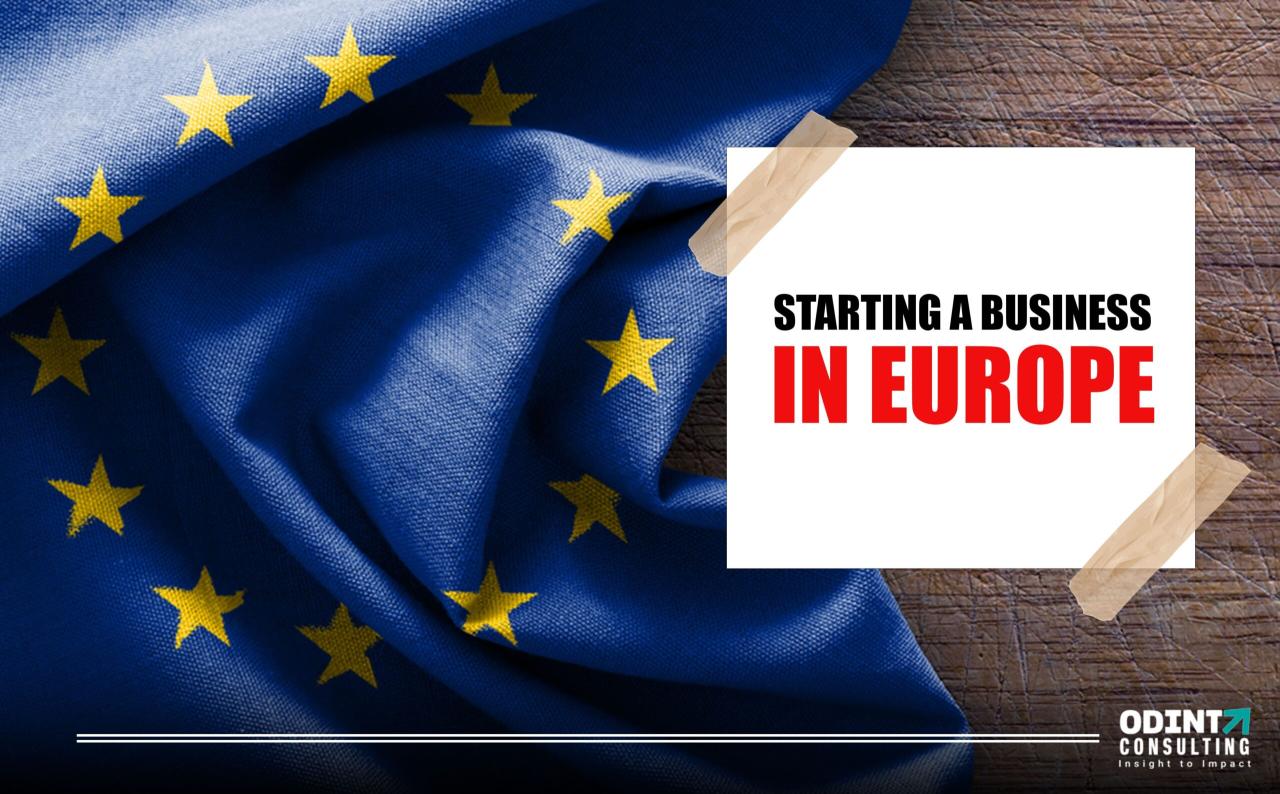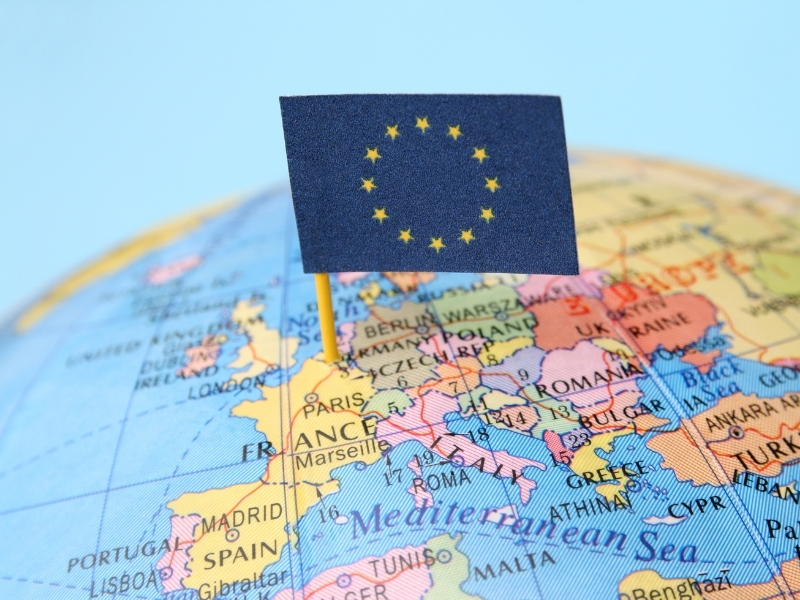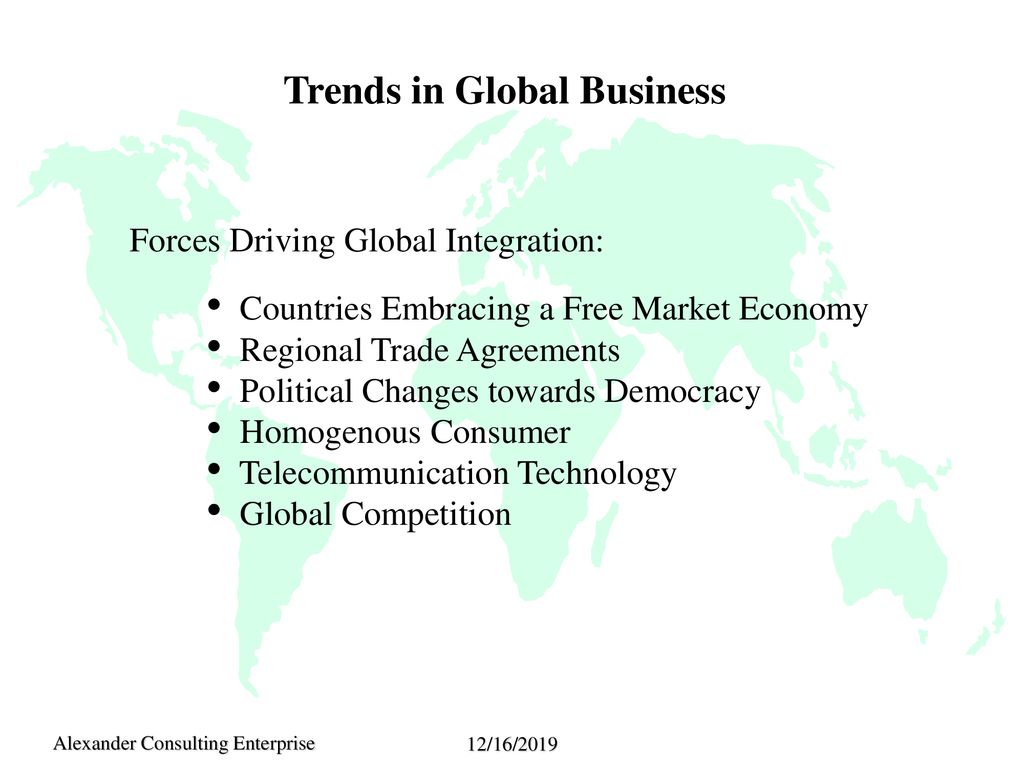Embark on a journey of expanding your business horizons with Tips for Launching an International Business in Europe leading the way. Discover the key strategies and considerations for a successful venture into the European market.
Delve into the nuances of research, legal requirements, cultural considerations, market entry strategies, and logistics management that are essential for a thriving international business in Europe.
Research and Planning

Before launching an international business in Europe, thorough research and meticulous planning are crucial steps to ensure success in a competitive market. Research helps in understanding the target audience, competitors, legal requirements, and cultural nuances, which are essential for making informed decisions.
Importance of Thorough Research
Research serves as the foundation for a successful international business venture in Europe. It helps in identifying market trends, consumer preferences, and potential challenges that may arise. By conducting comprehensive research, businesses can minimize risks and maximize opportunities for growth and profitability.
- Market Analysis: Understanding the European market dynamics, including demand for products/services, pricing strategies, and distribution channels, is vital for a successful launch.
- Competitor Analysis: Evaluating competitors' strengths and weaknesses can provide valuable insights for developing a competitive edge and positioning the business effectively.
- Legal and Regulatory Requirements: Researching the legal and regulatory framework in European countries is essential to ensure compliance with local laws and avoid legal issues.
- Cultural Considerations: Recognizing cultural differences and preferences in various European regions can help tailor marketing strategies and products/services to suit the local audience.
Significance of a Well-Defined Business Plan
A well-defined business plan acts as a roadmap for navigating the European market landscape and achieving business objectives effectively. It Artikels the business goals, strategies, financial projections, and operational processes, providing a clear direction for the business.
- Goal Setting: Establishing specific, measurable, achievable, relevant, and time-bound (SMART) goals in the business plan helps in tracking progress and staying focused on key objectives.
- Financial Planning: Creating detailed financial projections, including revenue forecasts, expenses, and investment requirements, enables businesses to assess the financial feasibility of their venture.
- Operational Guidelines: Defining operational processes, roles and responsibilities, and key performance indicators (KPIs) in the business plan ensures smooth execution and monitoring of business activities.
- Risk Management: Identifying potential risks and developing mitigation strategies in the business plan helps in minimizing uncertainties and preparing for unforeseen challenges.
Legal and Regulatory Compliance
Starting a business in Europe comes with essential legal requirements that vary depending on the country you choose to operate in. From company registration to tax obligations, understanding the legal framework is crucial for a successful launch.
Comparison of Regulatory Frameworks in Different European Countries
Each European country has its own set of regulations and compliance standards for businesses. For example, countries like Germany and France have strict labor laws and tax requirements, while countries in Eastern Europe may offer more favorable tax incentives for foreign businesses.
It is important to research and understand the specific regulations of the country you plan to operate in to ensure compliance and avoid legal issues.
Common Legal Challenges Faced by International Businesses in Europe
International businesses in Europe often face challenges related to differences in legal systems, language barriers, and cultural norms. Some common legal challenges include navigating complex labor laws, ensuring data protection compliance under GDPR, and understanding import/export regulations for international trade.
It is crucial for businesses to work with legal advisors who have expertise in European law to navigate these challenges effectively.
Cultural Considerations
Understanding and respecting cultural differences is crucial when launching an international business in Europe. Cultural nuances can significantly impact business operations, communication, and relationship-building with European clients and partners.
Strategies for Navigating Cultural Nuances
When entering European markets, it is essential to adapt your business practices to align with the cultural norms of each country. Here are some strategies for effectively navigating cultural nuances:
- Acknowledge and respect cultural diversity: Europe is a continent with diverse cultures, languages, and traditions. Embrace this diversity and show respect for different cultural practices.
- Invest in cultural training: Provide cultural training to your employees to help them understand and appreciate the cultural differences they may encounter in European markets.
- Build relationships based on trust: Establishing trust is crucial in European business culture. Take the time to build strong relationships with clients and partners based on mutual respect and trust.
- Adapt communication styles: Be mindful of communication styles in different European countries. Some cultures may prefer direct communication, while others value indirect communication. Adjust your approach accordingly.
- Be open to feedback: Feedback is an essential part of communication in Europe. Be open to receiving feedback from clients and partners, and use it to improve your business practices.
Building Strong Relationships with European Clients and Partners
Building strong relationships with European clients and partners is key to the success of your international business. Here are some insights on how to foster strong relationships in European markets:
- Show genuine interest: Take the time to understand the culture and values of your European clients and partners. Show genuine interest in their background and traditions.
- Respect cultural norms: Be aware of cultural etiquette and norms in each country you do business with. Show respect for local customs and traditions.
- Communicate effectively: Clear and open communication is essential in building strong relationships. Be transparent, honest, and respectful in your interactions with European clients and partners.
- Follow through on commitments: In European business culture, keeping promises and following through on commitments is crucial. Make sure you deliver on your promises to build trust and credibility.
- Be patient and persistent: Building relationships takes time, especially in European markets where trust is paramount. Be patient, persistent, and consistent in your efforts to nurture long-lasting partnerships.
Market Entry Strategies

When launching an international business in Europe, it is crucial to carefully consider the market entry strategies to ensure a successful expansion. Different strategies offer unique advantages and disadvantages, so choosing the most appropriate one is essential for long-term growth and sustainability.
Setting up a Subsidiary
Setting up a subsidiary in a European country involves establishing a separate legal entity that is controlled by the parent company. This strategy offers full control over operations, branding, and decision-making processes. However, it can be costly and time-consuming due to compliance requirements, tax implications, and administrative burdens.
Forming Partnerships
Forming partnerships with local businesses or investors in European countries can provide valuable insights into the market, access to established networks, and shared resources. Collaborating with a local partner can help navigate cultural nuances, regulatory challenges, and market dynamics. However, it may also lead to conflicts of interest, lack of full control, and dependency on the partner's capabilities.
Key Factors to Consider
Market Research
Conduct thorough market research to understand consumer preferences, competitive landscape, and regulatory environment in the target country.
Legal Framework
Evaluate the legal framework, tax regulations, intellectual property protection, and compliance requirements in the European market.
Cultural Fit
Consider cultural differences, communication styles, business etiquette, and consumer behavior to tailor your strategies accordingly.
Financial Resources
Assess the financial resources needed for market entry, including initial investments, operating costs, and potential risks.
Long-Term Goals
Align market entry strategies with long-term business goals, scalability, and sustainability to ensure a strategic approach to expansion.
Logistics and Supply Chain Management

Efficient logistics and supply chain management play a crucial role in the success of international businesses operating in Europe. Managing the movement of goods and services effectively is essential for meeting customer demands, reducing costs, and maintaining a competitive edge in the market.
Importance of Efficient Logistics
Effective logistics and supply chain management ensure timely delivery of products, minimize inventory costs, and enhance overall operational efficiency. By optimizing transportation routes, streamlining warehousing processes, and coordinating with suppliers, businesses can improve customer satisfaction and gain a competitive advantage in the European market.
Logistical Challenges in Europe
Customs Procedures
Navigating complex customs regulations and procedures when importing/exporting goods across European borders can be challenging.
Transportation Infrastructure
Varied infrastructure quality across European countries may lead to delays in shipments and increased transportation costs.
Language and Cultural Differences
Communication barriers and cultural nuances can impact collaboration with local partners and suppliers, affecting supply chain operations.
Optimizing Supply Chain Operations
- Utilize Technology: Implementing supply chain management software for real-time tracking and data analytics can improve visibility and decision-making.
- Collaborate with Local Partners: Establishing partnerships with local logistics providers and suppliers can help navigate regulatory requirements and enhance operational efficiency.
- Implement Lean Practices: Embrace lean principles to eliminate waste, reduce lead times, and improve overall supply chain performance.
- Continuous Improvement: Regularly review and optimize supply chain processes to adapt to market changes and improve responsiveness to customer needs.
Final Thoughts
As we conclude this insightful discussion on Tips for Launching an International Business in Europe, remember that thorough research, legal compliance, cultural awareness, strategic market entry, and efficient logistics are the pillars of success in the European business landscape. Implement these tips wisely and watch your business soar to new heights.
Top FAQs
What are the key factors to consider during the research phase?
Conduct in-depth market analysis, understand local regulations, assess competition, and identify target demographics.
What are the common legal challenges faced by international businesses in Europe?
Legal complexities in different countries, tax regulations, employment laws, and intellectual property protection issues are common challenges.
How can businesses effectively navigate cultural nuances in European markets?
By investing in cultural training, hiring local talent, respecting traditions, and adapting communication styles to suit different cultures.
What are the advantages and disadvantages of setting up a subsidiary versus forming partnerships in European countries?
Setting up a subsidiary offers more control but higher costs, while forming partnerships provides shared risk but limited control.
Why is efficient logistics and supply chain management crucial for international businesses in Europe?
Efficient logistics ensure timely delivery, cost savings, and customer satisfaction, all vital for success in the European market.




